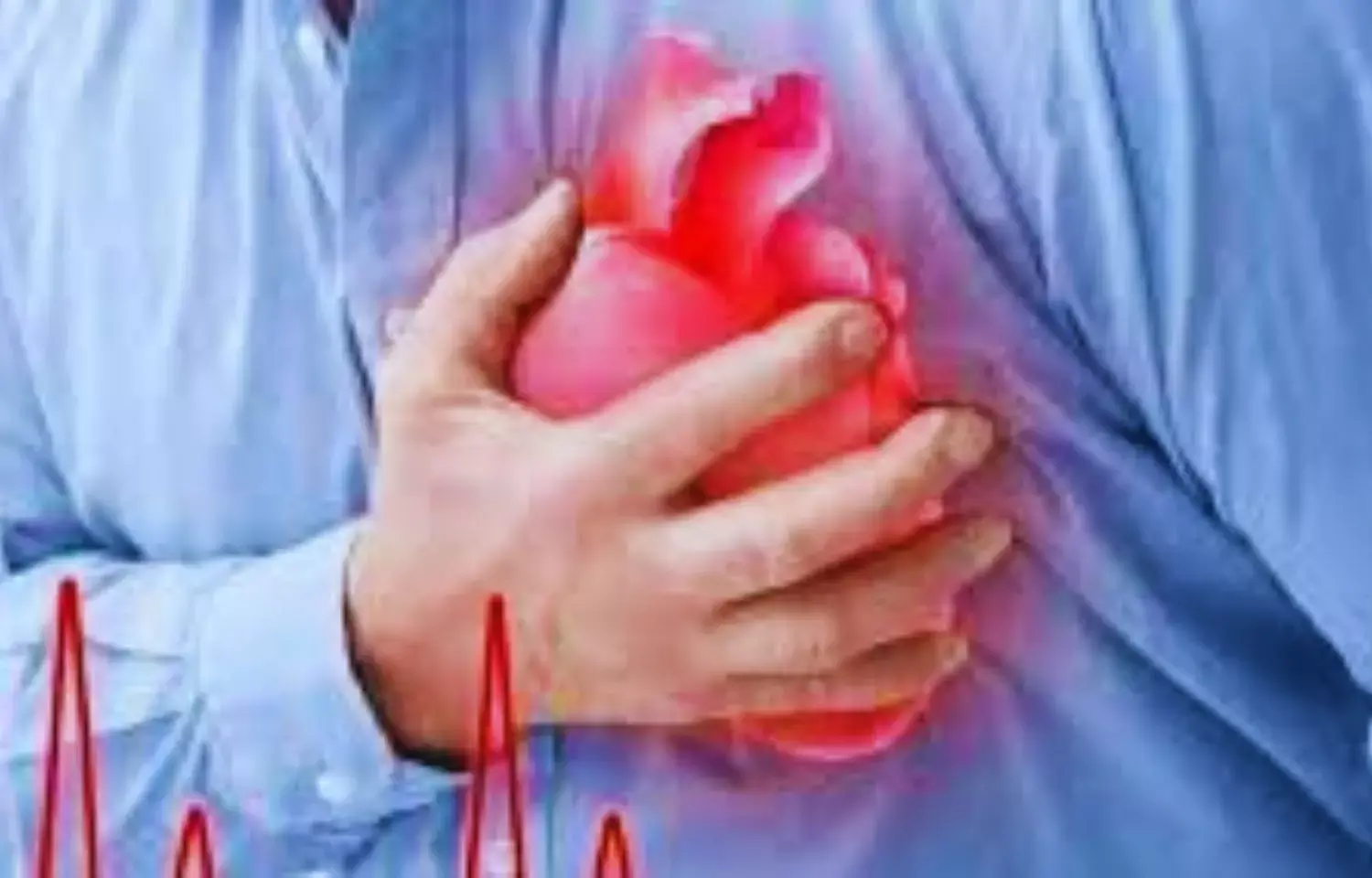- Home
- Medical news & Guidelines
- Anesthesiology
- Cardiology and CTVS
- Critical Care
- Dentistry
- Dermatology
- Diabetes and Endocrinology
- ENT
- Gastroenterology
- Medicine
- Nephrology
- Neurology
- Obstretics-Gynaecology
- Oncology
- Ophthalmology
- Orthopaedics
- Pediatrics-Neonatology
- Psychiatry
- Pulmonology
- Radiology
- Surgery
- Urology
- Laboratory Medicine
- Diet
- Nursing
- Paramedical
- Physiotherapy
- Health news
- Fact Check
- Bone Health Fact Check
- Brain Health Fact Check
- Cancer Related Fact Check
- Child Care Fact Check
- Dental and oral health fact check
- Diabetes and metabolic health fact check
- Diet and Nutrition Fact Check
- Eye and ENT Care Fact Check
- Fitness fact check
- Gut health fact check
- Heart health fact check
- Kidney health fact check
- Medical education fact check
- Men's health fact check
- Respiratory fact check
- Skin and hair care fact check
- Vaccine and Immunization fact check
- Women's health fact check
- AYUSH
- State News
- Andaman and Nicobar Islands
- Andhra Pradesh
- Arunachal Pradesh
- Assam
- Bihar
- Chandigarh
- Chattisgarh
- Dadra and Nagar Haveli
- Daman and Diu
- Delhi
- Goa
- Gujarat
- Haryana
- Himachal Pradesh
- Jammu & Kashmir
- Jharkhand
- Karnataka
- Kerala
- Ladakh
- Lakshadweep
- Madhya Pradesh
- Maharashtra
- Manipur
- Meghalaya
- Mizoram
- Nagaland
- Odisha
- Puducherry
- Punjab
- Rajasthan
- Sikkim
- Tamil Nadu
- Telangana
- Tripura
- Uttar Pradesh
- Uttrakhand
- West Bengal
- Medical Education
- Industry
Type 1 diabetes patients more likely to die after attack of myocardial infarction

Finland: After myocardial infarction, patients with type 1 diabetes face a higher risk of death compared to patients without diabetes, a research states. The findings of the study, published in the journal Diabetes Care, call for attention to vigorous prevention of cardiovascular disease in type 1 diabetes patients.
Type 1 diabetes is a known risk factor for myocardial infarction (MI). Anne M. Kerola, Faculty of Medicine, University of Helsinki, Helsinki, Finland, and colleagues conducted the study to evaluate the case fatality in patients with type 1 diabetes after MI.
For this purpose, the researchers studied consecutive patients experiencing MI with type 1 diabetes (n = 1,935; 41% female; mean age 62.5 years) and without diabetes (n = 74,671) who were admitted to 20 hospitals in Finland from 2005 to 2018 using national registries. Death within 1 year after MI was the outcome of interest. Multivariable adjustments and propensity score matching were used to balance differences between groups.
The findings of the study were as follows:
- Case fatality was higher in patients with type 1 diabetes than in propensity score-matched controls without diabetes at 30 days (12.8% vs. 8.5%) and at 1 year (24.3% vs. 16.8%) after MI (hazard ratio 1.55).
- Patients with type 1 diabetes had poorer prognoses in subgroups of men and women and of those with and without ST-elevation MI, with and without revascularization, with and without atrial fibrillation, and with and without heart failure.
- The relative fatality risk in type 1 diabetes was highest in younger patients.
- Older age, heart failure, peripheral vascular disease, renal failure, and no revascularization were associated with a worse prognosis after MI.
- The case fatality among patients with type 1 diabetes decreased during the study period, but outcome differences compared with patients without diabetes remained similar.
"Type 1 diabetes patients are at higher risk of death after MI than those without diabetes," wrote the authors. "Our findings call for attention to vigorous cardiovascular disease prevention in patients with type 1 diabetes."
Reference:
Anne M. Kerola, Markus Juonala, Antti Palomäki, Anne Grete Semb, Päivi Rautava, Ville Kytö; Case Fatality of Patients With Type 1 Diabetes After Myocardial Infarction. Diabetes Care 2022; dc220042.https://doi.org/10.2337/dc22-0042
Dr Kamal Kant Kohli-MBBS, DTCD- a chest specialist with more than 30 years of practice and a flair for writing clinical articles, Dr Kamal Kant Kohli joined Medical Dialogues as a Chief Editor of Medical News. Besides writing articles, as an editor, he proofreads and verifies all the medical content published on Medical Dialogues including those coming from journals, studies,medical conferences,guidelines etc. Email: drkohli@medicaldialogues.in. Contact no. 011-43720751


